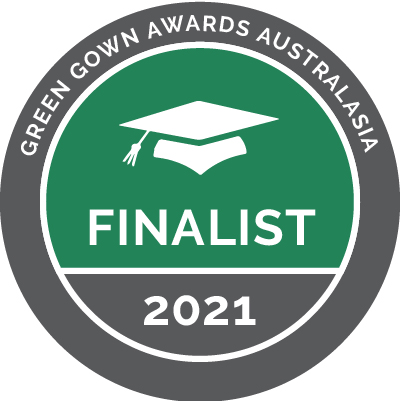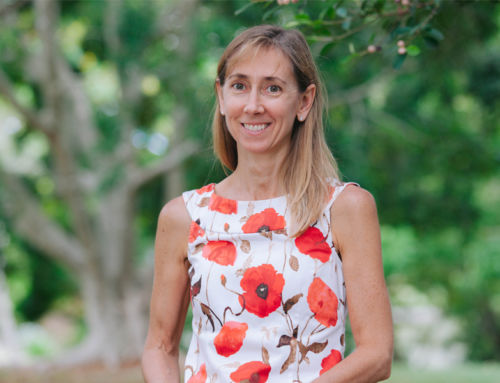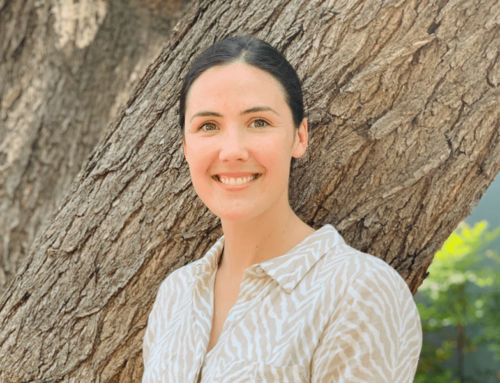University of Tasmania
Through sustainability initiatives that I have set up and led in my role in IT Services, I have saved over 55,000 kWh of power per annum (8,000+ kg CO2-e) without disruption to business operations for University staff and students, and diverted dozens of computers from landfill into the hands of students who are facing emergency situations and could not afford laptops. I undertook both of these initiatives during the COVID-19 pandemic.
These initiatives have benefits much wider than just environmental and financial sustainability, and the quantitative measures of savings in electricity and avoiding landfill. Preparing laptops for students in financial distress improves students’ access to education, reducing inequalities, and positively impacts on their mental health and wellbeing.
> A closer look
I work as an IT Services staff member at the University of Tasmania (UTAS). As my work took me around multiple buildings around campus, I noticed most multi-functional printers remained powered on 24/7. I approached the Director of Shared Services for approval to liaise with our managed printing services vendor to implement power saving measures. As requested, I researched and wrote a business case that was required for change management. I used a power monitoring kit to measure the power usages of different printer models in different power states (sleep, standby). The business case was approved, and I then worked with the external vendor to implement configuration changes. As a result, now over 200 printers at the University of Tasmania enter sleep mode after 30 mins of inactivity, saving a conservative estimate of over 55,000kWh per year, resulting in 8,000+ kg CO2-e avoided annually, and over $3,400 in electricity costs. Furthermore, having the printers in sleep mode reduces wear and tear on printer components, extending their lifespan. This initiative directly contributes to reducing the University’s carbon footprint from electricity use, and thus contributing to our status as a certified carbon neutral University by the Commonwealth Climate Active Carbon Neutral Standard.
At the moment, the University of Tasmania does not have a standard procedure for recycling computer packaging. I have been volunteering to collect soft plastic packages from computer deployments and dropping them off at REDcycle collection points in my personal time. An end-of-lifecycle hardware replacement in a computer lab can involve up to 20-30 new computers, generating a significant amount of soft plastics in one go.
The University of Tasmania has a policy of replacing computers that are out of warranty – 3 years for laptops and 4 years for desktops. End of life devices were disposed of as e-waste. Along with UTAS Sustainability staff, a Sustainability Integration Program for Students (SIPS) intern and senior managers in IT, we developed a formal process to wipe and donate those devices to students in need, and I was responsible for writing up a procedural document for the process. I also started actively collecting usable computers that would have been destined for e-waste before the process was finalised.
I have set up second-hand / decommissioned computers for donation to students via the Tasmanian University Student Association (TUSA). The set up involves securely wiping institutional data, reinstalling the operating system, and installing all driver and software updates so that students with no technical skills will be able to use the computers straight away. The number of computers donated has steadily grown over the years and due to the new procedure document other members of the IT services team are able to use the procedure, which enables more computers to be processed and donated.
During our COVID-19 lockdown, as campuses were closed and students had to study online, those students who could not afford their own computer and would normally rely on on-campus computer labs were unable to access computers. The new procedure and the store of computers proved critical as a bulk donation event was needed to process 70 computers that were urgently required for students in need. This allowed us to support and improve access to education and equity for those who could not afford computers.
Each laptop donated avoids waste to landfill and carbon emissions. According to Dell, a typical laptop has a carbon footprint of 320 kg CO2-e (in Europe), as calculated according to the International Standards governing the investigation and evaluation of the environmental impacts of a given product over their life cycle (ISO14040 and ISO14044). Diverting 70 laptops from landfill during the lockdown period, avoided 22,400 kg CO2-e.
The projects above were not part of my work responsibilities as defined by the PD; but I saw them as an integral part of my efforts to improve sustainability in my everyday life as a citizen of the world.
> Impact and benefits
The project of rolling out power saving settings to all printers on campus has monetary and environmental benefits for the University of Tasmania, and it aligns with the University’s commitment to minimising greenhouse gas emissions and being a carbon neutral certified institution. The project itself only cost my own time and that of the external vendor, with no financial expenditure required from the University (as ongoing management of the printers is part of our contract with the managed printing services vendor).
Users of the printers only need to swipe their ID cards and the printers will automatically wake up and start printing – so there is no impact on user experience. Furthermore, there is the added benefit of a reduction of noise pollution from the fans of large printer units, for those whose desks are right next to a printer.
When I initiated this project, I was an IT Client Services Officer whose responsibilities were to assist users with technical issues. Project work and collaboration with external vendors belong to the domain of Senior IT Client Services Officers, hence I was promoted to Senior IT Client Services Officer earlier this year, when a vacancy became available). In other words, I came up with the initiative, and voluntarily took on tasks that would normally be undertaken by staff on a higher salary.
The project to divert decommissioned computers from e-waste and into the hands of students in need, plays an important part in reducing the carbon footprint of the University as well as improving equitable access to quality education for those who are unable to afford basic technologies (UN SDG4). This is an ongoing project with over 70 computers donated to students during the height of the COVID-19 lockdown in Tasmania.
Laptops donated to students are not restricted to educational use only. International students unable to return home due to border closures would have been able to use the devices to keep in touch with their loved ones, which is crucial to their health and wellbeing, and their ongoing access to higher education in Australia. Consequently, this project contributes to the United Nations’ SDG3 Good Health and Wellbeing.
Preparation of the computers for donation takes quite some time – it involves securely wiping institutional data, reinstalling Windows, updating all drivers, and sometimes replacing certain hardware parts if the computer would otherwise be un-usable due to a faulty part. Some students would have been unable to continue with their studies due to campuses being closed down during COVID-19 and being unable to access computer labs.
As this is an ongoing project, more and more students will benefit from it. Since February this year, I have received requests for 16 laptops from the Tasmanian University Student Association, the organisation that does the initial assessment of student needs and physical donation of laptops.
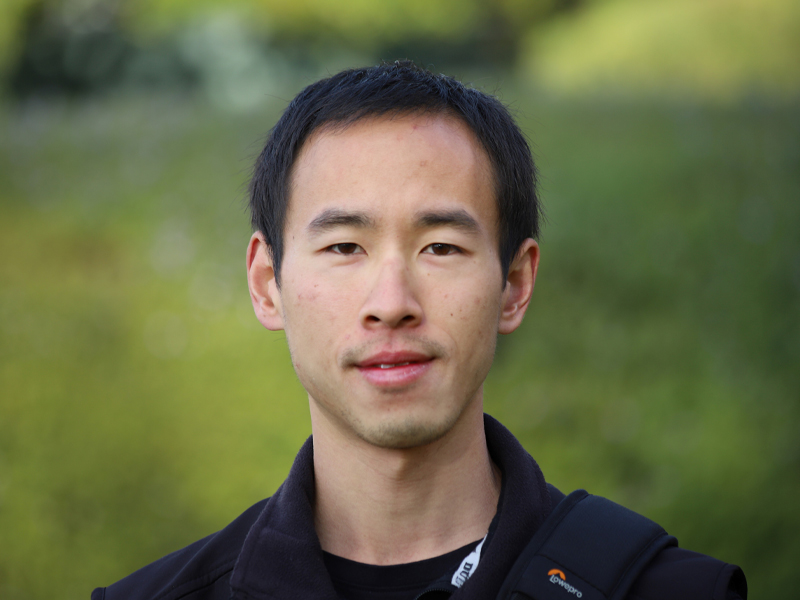
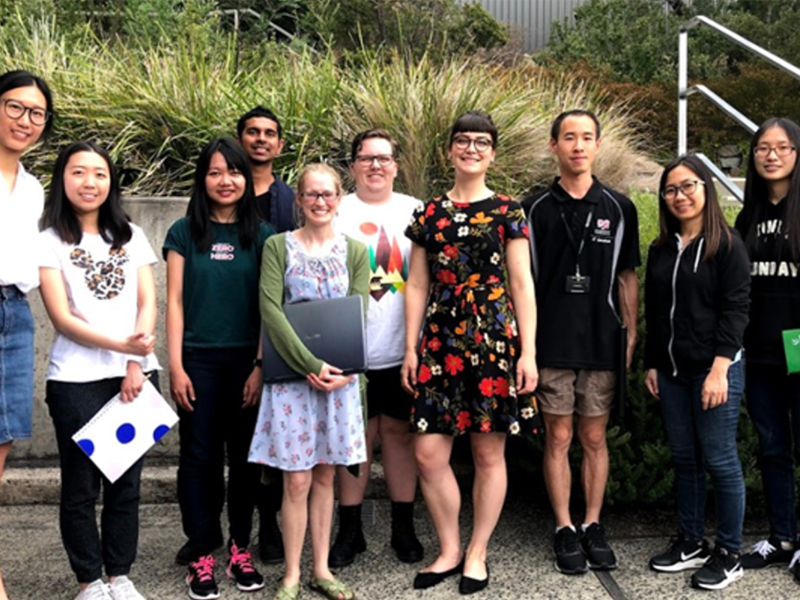
> Leadership and engagement
I feel that I have shown outstanding leadership and initiative in my endeavours outlined above. In both projects I was able to identify a problem or need as it arose, and used critical thinking and research skills to present a high-quality business case that enabled a decision to be made efficiently.
I have gone well above and beyond my role at work in initiating and completing the projects, especially during times when my team was extremely short-staffed. I often stayed at work after hours as needed (voluntarily unpaid) in order to complete the projects; and when it comes to collecting soft plastics for REDcycle, I take them to drop off points in my personal time in my private vehicle (to reduce my carbon footprint, I would do this as part of my other personal trips, such as grocery shopping).
Separate, but complementary, to my staff activities that are the focus of this application, I was awarded the 2020 Green Impact Australasia Award for my contributions as a student co-founder of the Tasmanian University Student Association (TUSA) Zero Waste Society and our efforts to remove single-use plastic pollution from the South West Wilderness World Heritage Area.
In recognition of my workplace initiatives outlined above I have been successful in my application for the role of Senior IT Client Services Officer at the University of Tasmania earlier this year, with the judging panel citing the merits of showing leadership in trying times, and going above and beyond my work duties to contribute to sustainability and user experience at the University.
Without the formal procedure for preparing computers for donation, the University would not have been able to respond to the campus closures and provide laptops for students so efficiently.
The projects contributed to the University of Tasmania’s efforts to reduce its carbon footprint and improve sustainability. The University achieved a Silver STARS (Sustainability Tracking and Assessment Rating System) rating in 2020 for its sustainability efforts, and aims to achieve a Gold rating in 2022. The projects to cut down printer energy use, divert decommissioned computers from e-waste, and remove soft plastics from new computers from landfill will contribute to this ambitious goal.
> Wider societal impact
Tasmanians have some of the lowest digital literacy and digital inclusion in Australia (Tasmanian Department of Premier and Cabinet, 2021). The initiative to donate decommissioned computers to students improves their educational outcomes and gives them better opportunities in life as a member of the community. And in the words of Julian McDougall, Mark Readman & Philip Wilkinson (2018), digital literacy is the “conduit for social praxis”, and it has the “potential to disrupt educational power relations, give voice and address marginality”.

